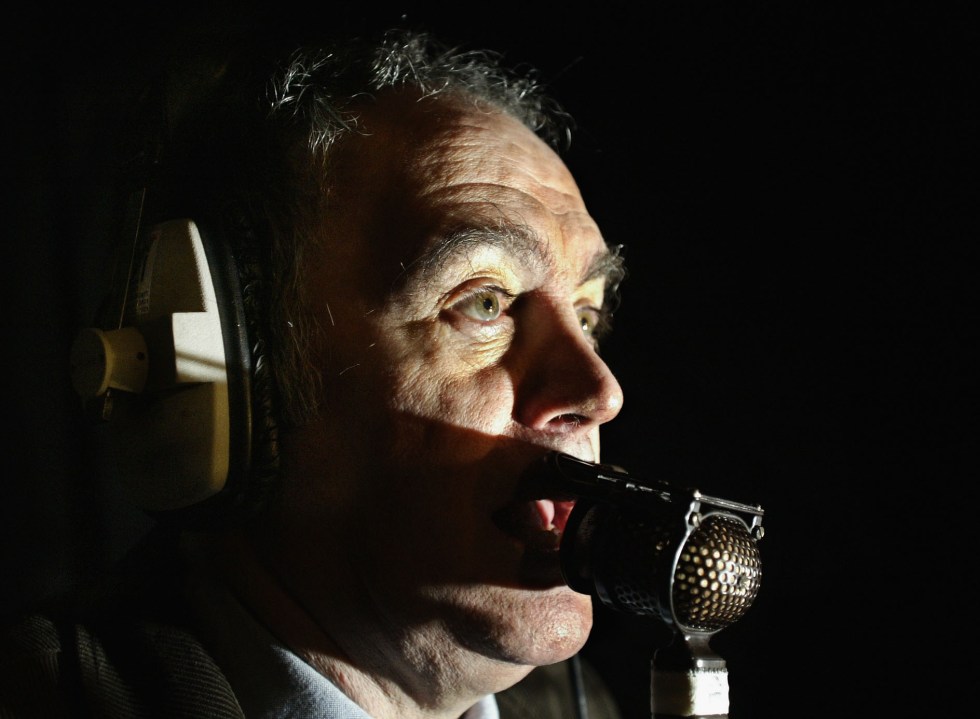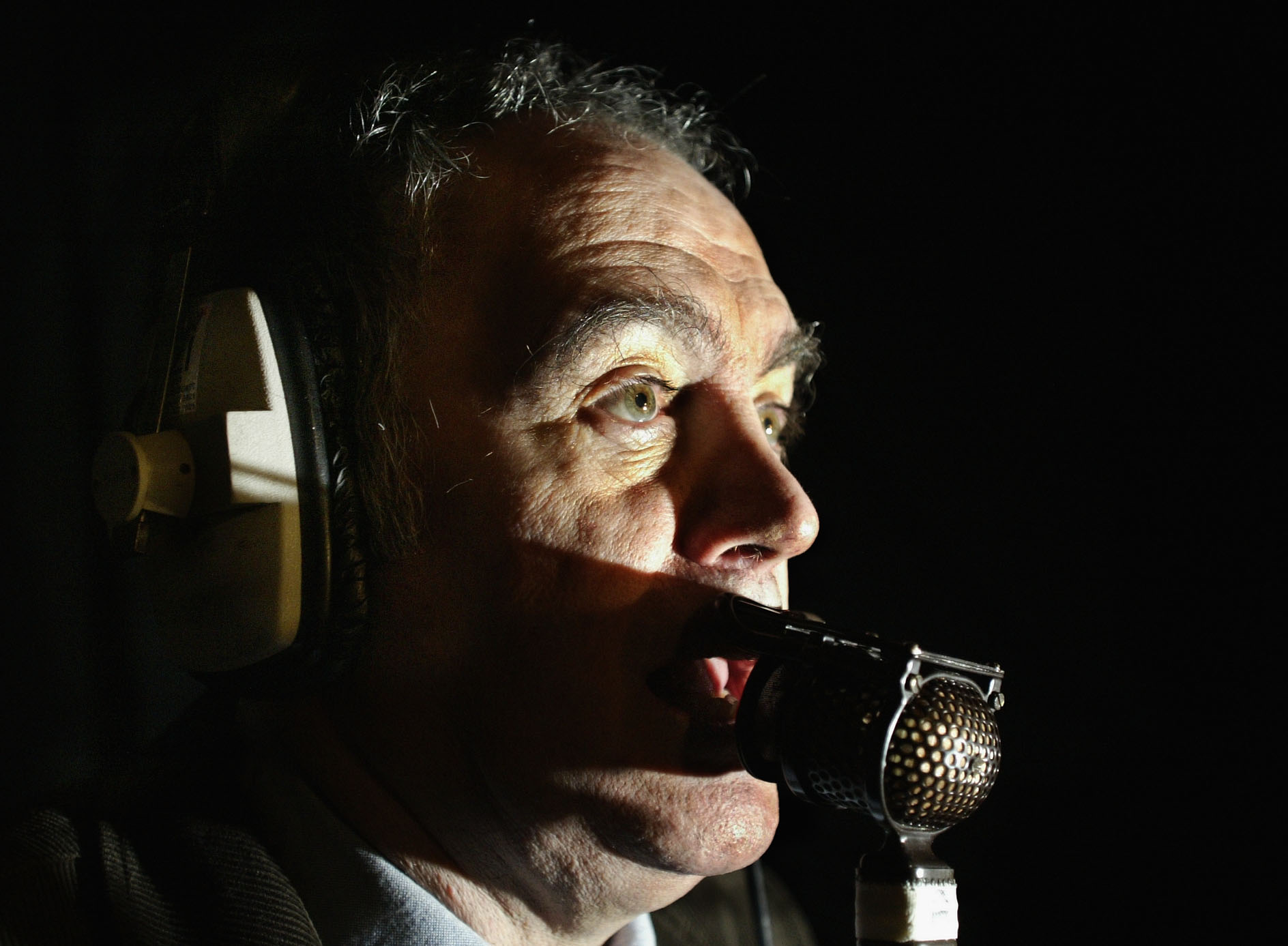Reader TT asks a good question: given your (self-appointed) role as the Spectator’s unofficial darts correspondent, why haven’t you written anything on the death of Sid Waddell? What can I say? Grief moves one in mysterious ways.
Few people can claim to have created a sport, yet that was Waddell’s achievement and only nit-pickers and other churls would mock the fact that the sport Waddell created was darts. Before Sid there was nothing and the darts universe is his creation. As he might almost have put it, “God took six days to create his world, Phil Taylor needed just three hours to build his. And Taylor never rests on the Sabbath.”
Though a Northumbrian by birth, Waddell was an example of the democratic intellect. Had he been Scottish he’d have been considered a “lad o’pairts”. Rising from humble beginnings he made it to Cambridge and then Durham universities. His love of books would, in time, provide the hinterland for his commentary.
His genius was to appreciate that fat men flinging arrows at tiny targets eight-feet distant could be more than just a pub game. Much more than that, in fact. Waddells’s commentary persuaded the viewer that they were watching great drama. If, as I’ve noted before, the darting world is characterised by a splendid “air of semi-ironic gladiatorial mock-heroism” then this too was Sid’s creation. It was a gift he bestowed on the players and the audience in equal measure.
Perhaps he sometimes teetered close to self-parody but he nevertheless managed something remarkable. That is, he persuaded viewers that they were watching a sporting event that was important and yet still – and simultaneously – grandiloquent nonsense.
He understood that, presented properly, darts is a vehicle for theatre. That drama was both reinforced and subtly undercut by Waddell’s magnificent hyperbole. His most famous line was a perfect demonstration of this and deserves to be in some commentary hall of fame: “When Alexander of Macedonia was 33, he cried salt tears because there were no more worlds to conquer – Bristow’s only 27.” It cannot get better than that.
But there were many other marvellous moments, all of them delivered by a commentator whose style was inimitable. He was an excitable Geordie banshee in a blender and, by god, it was grand. Without Waddell darts might never have made it to our television screens; with a more pedestrian commentator it could never have captured our hearts.
Sid’s own heart was first lost to Jocky Wilson and then, utterly and irrevocably, gifted to Phil Taylor. He made extravagant claims for Taylor’s genius but if Ryan Giggs could be awarded the BBC’s “Sports Personality of the Year” award as some kind of lifetime achievement bauble Waddell – and darting aficionados everywhere – had cause to be aggrieved that the Pride of the Potteries was not comparably recognised.
If Waddell was a kind of darting Zeus, father of all he surveyed, Taylor was, figuratively speaking, his son. To put it in the kind of flamboyant terms in which Sid delighted, the Power was some kind of Ares, a god of war who, as one historian has described it, was “overwhelming, insatiable in battle, destructive, and man-slaughtering”. Or, as Sid put it himself, “If we’d had Phil Taylor at Hastings against the Normans, they’d have gone home.”
At times Waddell’s Power-worship was mildly unsettling. But by the turn of the century he had earned the right to indulge his favourites. Where would they have been without him?
His commentary often took on a Wodehousian flavour. The great man would have enjoyed Sid’s command of language. He might even, on occasion, have envied this facility. No commentator at the Drones Club annual darting extravaganza could have bettered this description of a 180: “That was like throwing three pickled onions into a thimble!” Similarly, one likes to imagine that Plum would have smiled at the notion that “Big Cliff Lazarenko’s idea of exercise is sitting in a room with the windows open taking the lid off something cool and fizzy.” And had he been a kitchen-minded kind of man, Wodehouse would surely recognise this description of an over-beaten, vanquished, hero: “He looks about as happy as a penguin in a microwave.”
His death – I’m afraid I abhor the faux-gentility of describing it as his “passing” – also robs us of one of the last voices wholly and inescapably linked to a single sport. Waddell was the Bill McLaren or the Peter O’Sullevan or the Dan Maskell or the Ted Lowe of his sport. These giants have plenty of fine descendents but none of them in this multi-channel age will be the “voice” of any given sport as their predecessors were. That’s not their fault.
As for darts, well, John Gwynne is a grand commentator himself but he can’t be Sid. If the darting authorities have sense they should name the World Championship trophy after Waddell.
It all reminds me of Simenon’s comment on first encountering the Scott Monument in Edinburgh. They built this, he asked of the largest memorial to any writer ever, And for one of us? Well, why not? He created us.
Darts and its place in the mainstream fabric of British sport is Sid Waddell’s monument. His achievement should be recognised and celebrated. We shall not hear his like again.








Comments